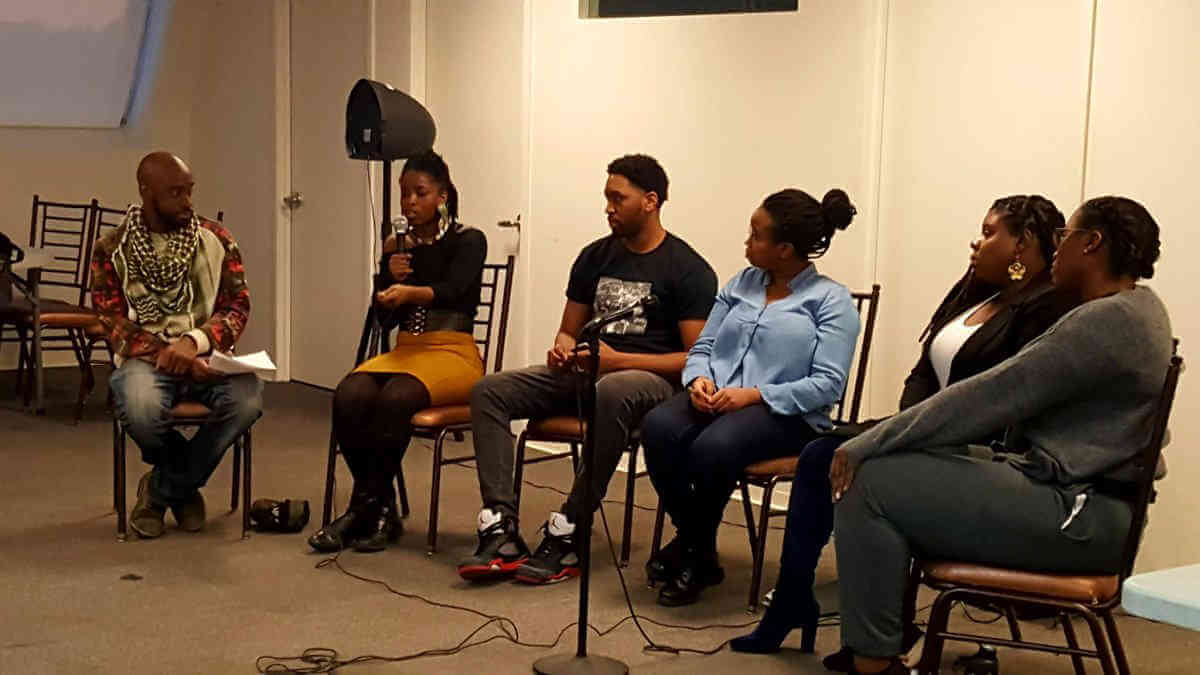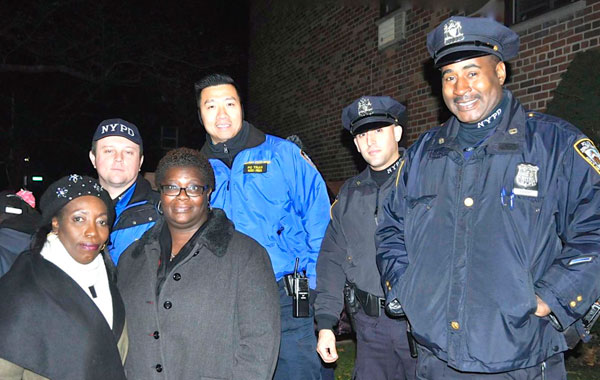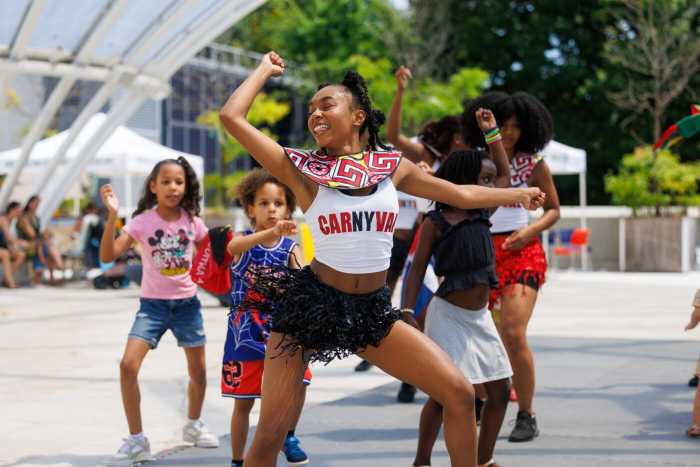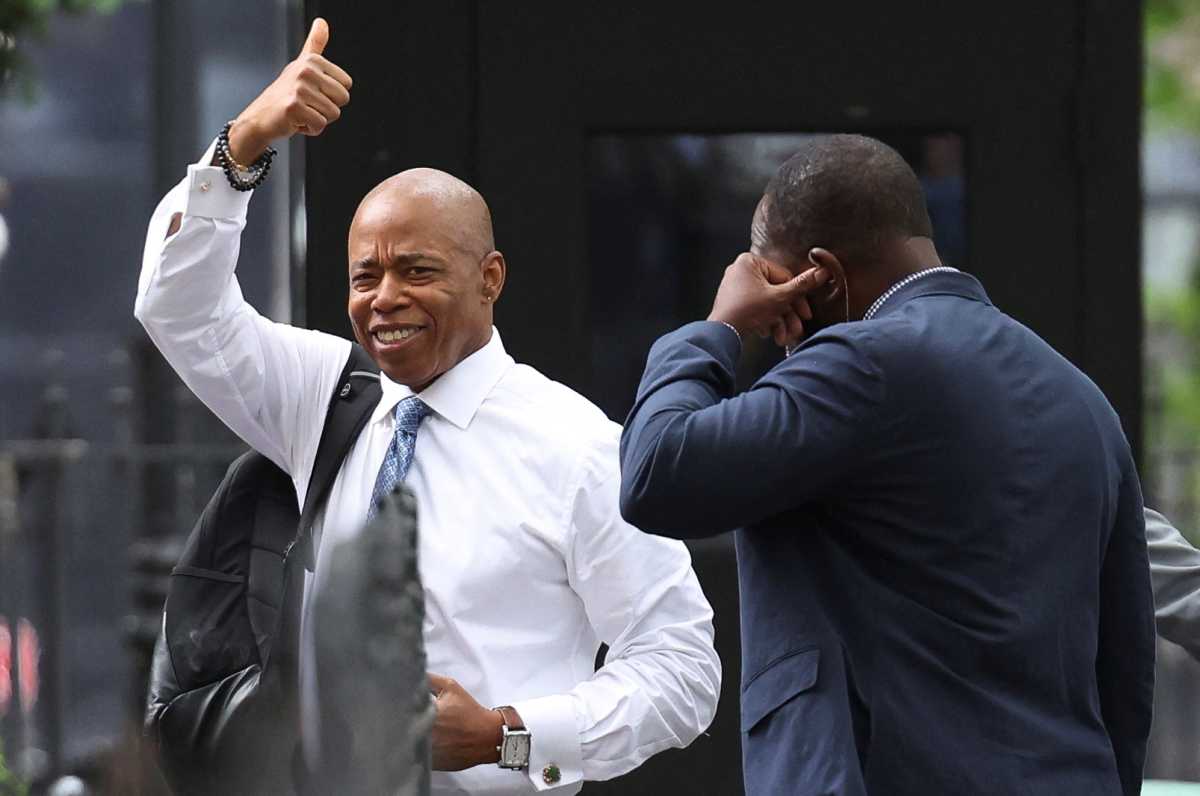Dozens of Bedford-Stuyvesant residents and community organizers turned out for a public forum about the city’s impending plans to expand jails at Restoration Plaza on Jan. 26.
At the event arranged by #NoNewJailsNYC — a multi-organizational campaign that includes groups like Black Alliance for Just Immigration (BAJI), BYP100, Audrey Lorde Project, Inmate Workers Organizing Collective, and several more — organizers and other advocates detailed to guests on the uncertainty of the Rikers Correction Facility actually closing, and the city’s plan to construct four new jails in place of its expected shutdown. The possible outcome will not only continue to harm communities of color, but the multi-billion dollar budget for a jail expansion project could be better utilized in programs and efforts that could positively affect the community, said a BAJI community organizer.
“What’s going on is the city plans on building more jails and is going to spend billions of dollars on this, and there’s no real guarantee that Rikers is going to close in 10 years and they may only be partially closing it,” said Albert Saint Jean. “This money is going to be invested in a police state and not in education, not in housing for the homeless, or mental health and it doesn’t make sense.”
Last year, Mayor DeBlasio unveiled a $10 billion-dollar plan to build four prisons in each borough except Staten Island.
In addition, to the uncertain closure, Saint Jean said the city’s existing prison populations is excessive because many detainees are in prison awaiting trial or cannot afford to put up bail. Of the 8,000 incarcerated on the island, about 6,000 are counting down the days until their day in court, according to Saint Jean.
“The majority of the people in there are there because there’s no quicker process, so why is the city planning to build more jails and talk about decarceration?” he asked. “More than 80 percent of the people in Rikers are waiting for trial and that’s the problem.”
The construction of new jails will not reshape the current system, and in fact, areas of major concerns like public housing and racial disparity in arrests will continue go unaddressed, he added.
“It wouldn’t change anything regarding the status quo because those funds are going to create more jails and people are still going to get locked up — it won’t address anything or the criminalization of the black community,” said Saint Jean. “But when we look at what’s going with public housing, those same funds could go towards that.”
He said many questions residents raised at the forum expressed alarm, but more so curiosity on how they could campaign against the expansion and who to contact.
“People really wanted know more and learn more, because they didn’t even know what is being done but they want to stop it,” he said.
The grassroots organization often does on-the-ground outreach in communities where there is a high number of incarcerated residents, such as Bedford-Stuyvesant. He said if enough people are informed about the city’s plan — elected officials will be pressured to advocate and bring more attention to the matter.
Saint Jean said more jails will lead to more arrests and these communities that tend to see many of these arrests suffer from other systematic disparities.
“We need to let the city know this is not a good idea, and understand this is something that robs our community of a better future, better housing, education and a whole bunch of experiences,” he said. “If we let this happen, we’re just continuing the pattern of ignoring the issue.”























